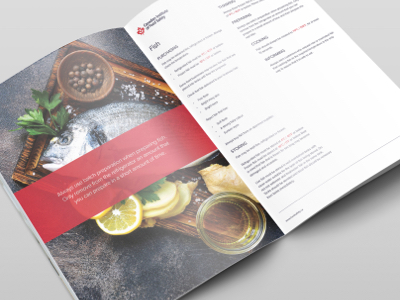Start your business with food safety

Every year in Canada, hundreds of businesses are fined or closed down for:
- not following the correct food safety procedures
- not adhering to food safety legislation
Being serious about food safety from the start will help:
- protect your new food business from these problems
- protect your customers from getting sick
You’ll need to adhere to all food safety legislation. For most new food businesses in Canada this includes hiring employees with Food Handler Certification.
Food safety laws apply to you
A common misconception is that food safety legislation only applies to hospitality businesses. You may be surprised to discover that your new business is considered a food business by law. Examples of typical food businesses include:
- cafes and restaurants
- hotels and motels
- bars, pubs and clubs
- event and conferences centres
- casinos and gaming venues
- market stalls
- convenience stores
- supermarkets
- service stations
- groceries, butchers, delis and bakeries
- food-based charity organizations
- catering businesses
- hospitals and hospices
- childcare and aged care facilities
- school cafeterias
- food processing facilities
- canneries and breweries
- food delivery and storage services
Starting your food business
Every business is required to register with the government and obtain a business number and GST/HST tax account. Once registered, you’ll need to obtain your business licence and food permit. But with a food business, this is just the beginning. Food safety should be at the top of your priority list.
As a new food business owner, you’re required by law to maintain a high level of food safety at all times. Your business can meet its food safety legal requirements in four steps:
Understand the laws that apply to you
The location of your business dictates the legislation that you're required to follow. You need to comply with federal, provincial and municipal laws.
Certification is mandatory
In most provinces, the owner and multiple food workers must have Food Handler Certification, which typically requires renewal every five years.
Build a Food Safety Plan
A Food Safety Plan ensures that the food you sell is safe. Your plan will cover time and temperature control, proper employee hygiene, cleaning and sanitizing procedures, and more.
Prepare for inspection
An Inspector may visit your premises without warning. They'll ask to see your Food Safety Plan and Food Handler Certificates. Keep both up-to-date and easily accessible.
Don't take risks
Not knowing the difference between cleaning and sanitizing, cooking foods to the wrong internal temperatures or improperly storing food have caused some of the worst food poisoning outbreaks in history. If you don't follow food safety legislation and are responsible for food poisoning, the consequences can be serious.
Damaged reputation
The media frequently report food safety scandals. It’s difficult for a business to recover its reputation after a food safety incident.
Significant fines
Fines can cost thousands of dollars. Businesses may have multiple charges raised against them at one time.
Business closure
If your food business is deemed a serious health risk to the public, a Health Inspector will close it immediately.
Prosecution
Depending on how your business is structured, you may be held personally liable for a food safety incident.




